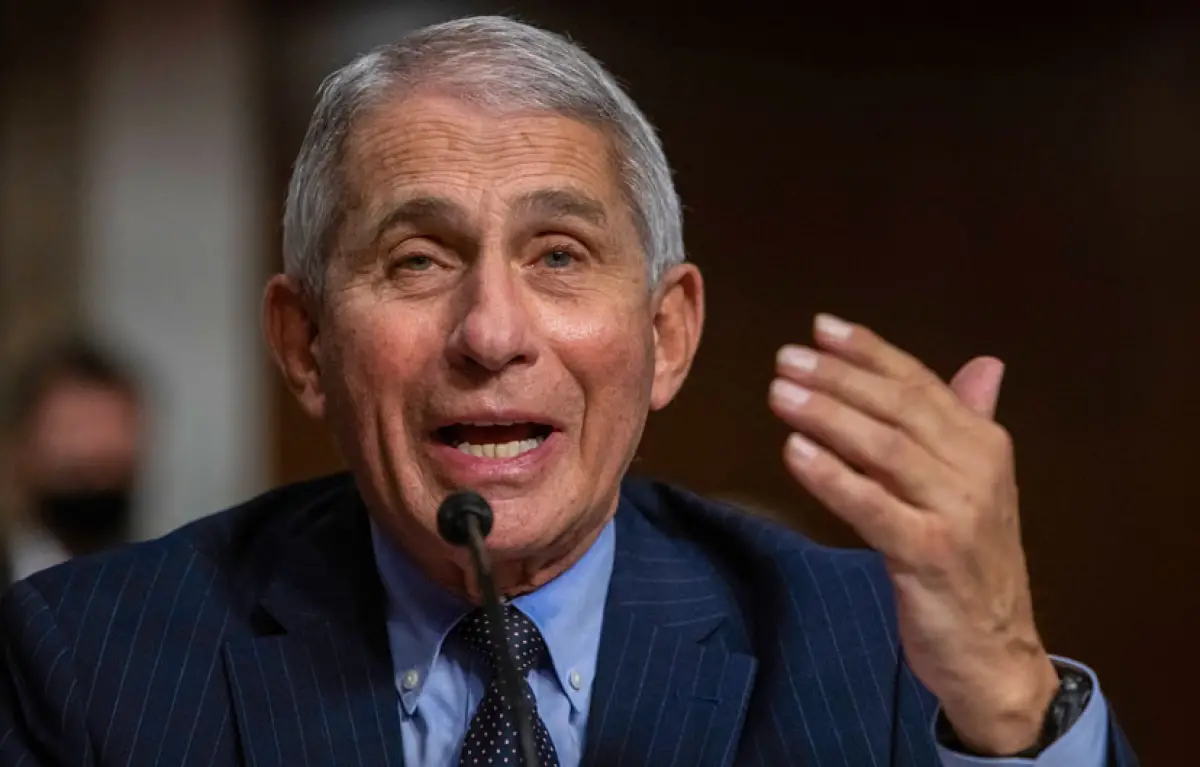In a move that has reignited heated debates, former President Donald Trump decided to terminate the taxpayer-funded security detail for Dr. Anthony Fauci, a prominent figure during the COVID-19 pandemic. Fauci, who served as the leading health expert and public spokesperson for pandemic-related health measures, had been under federal protection following threats against his safety.
This decision, along with other controversial actions by Trump, continues to highlight the deep political divisions surrounding Fauci, his role in the pandemic, and broader discussions about the intersection of public health and politics.
Fauci’s Security Detail: A Background
In 2020, amid growing tensions and misinformation during the pandemic, Fauci received threats tied to his public profile and guidance on COVID-19 protocols. The National Institutes of Health (NIH) requested federal security measures to ensure his safety. At the time, Fauci was not just a key health figure; he had become a lightning rod for both praise and criticism.
Public health decisions, including mask mandates, lockdowns, and vaccine rollouts, became politically charged. Fauci’s prominence as a trusted scientist for some and a symbol of government overreach for others put him in an unusual—and often dangerous—spotlight.
However, Trump’s decision to terminate Fauci’s security detail has raised eyebrows, with critics questioning whether it leaves Fauci vulnerable to potential threats, especially given the lingering polarization around his work during the pandemic.
Trump’s History of Revoking Protections
This decision isn’t without precedent. Trump has previously taken similar actions that targeted individuals he deemed untrustworthy or politically opposed to his administration. Notably, during his presidency, Trump revoked the security clearances of 51 intelligence officials who had publicly cast doubt on the legitimacy of Hunter Biden’s infamous laptop, labeling it a potential “Russian information operation.”
Additionally, Trump withdrew security measures and access for figures like former CIA Director Mike Pompeo and National Security Advisor John Bolton. These moves were often framed by Trump and his supporters as efforts to curb misuse of taxpayer dollars and reduce protections for those perceived as adversarial to his administration’s goals.
Fauci’s security revocation fits into this pattern of politically charged decisions that often polarized the public and fueled media controversies.
Pardons and Legal Debates
Fauci’s name has appeared alongside other high-profile figures in broader legal and political discussions. Notably, in a round of last-minute presidential pardons, then-President Joe Biden extended clemency to several individuals, including former Wyoming Congresswoman Liz Cheney and former Joint Chiefs of Staff Chairman General Mark Milley. These pardons were seen by some as preemptive measures to shield allies from political retaliation by Trump or his administration.
However, legal experts have pointed out that presidential pardons are not all-encompassing. Federal litigation attorney Jesse Binnall emphasized that such pardons do not protect individuals from having to testify under oath if subpoenaed. If Fauci were subpoenaed in a GOP-led congressional investigation, for instance, he would still be required to testify and could face legal consequences for perjury.
“A pardon typically grants forgiveness for specific offenses committed before the pardon was issued,” explained former Arizona legislature candidate Josh Barnett. “If someone commits a new offense, such as treason or perjury, after receiving a pardon, the original pardon does not extend to those new crimes.”
These nuances have sparked debates about whether figures like Fauci, Milley, and Cheney might face legal scrutiny despite receiving presidential clemency.
Trump on Why Biden Pardoned Liz Cheney:
“Liz Cheney, she’s a lunatic … Why would Biden do that? He pardoned her and pardoned everybody. The reason is that they destroyed documents. And if you’re even in a civil case, which this wouldn’t be, people go to jail for a long time for… pic.twitter.com/dsvCHlToin
— Chief Nerd (@TheChiefNerd) January 21, 2025
The Political Fallout
Trump has not shied away from criticizing Biden’s pardons or defending his own decisions, including the revocation of Fauci’s security detail. Speaking during his post-presidency, Trump called the pardons a political ploy, criticizing figures like Milley and Cheney for their actions during his administration.
“Why are we helping people like Milley? Why are we helping Liz Cheney?” Trump said during an Oval Office interview. “Liz Cheney is a disaster—a crying lunatic.”
The sharp rhetoric from Trump underscores the partisan tensions surrounding figures like Fauci. While some view Fauci as a hero who provided steadfast guidance during a crisis, others see him as a divisive figure whose decisions had far-reaching economic and social consequences.
Fauci’s Legacy and Public Perception
Dr. Fauci’s legacy is one of complexity. On one hand, he is celebrated as a dedicated scientist who played a critical role in navigating the U.S. through a historic public health crisis. On the other hand, his detractors accuse him of inconsistencies, overreach, and fostering unnecessary fear during the pandemic.
Trump’s decision to revoke Fauci’s security detail has added another layer of controversy to the ongoing debates about Fauci’s role and accountability. Critics argue that the move endangers a public servant who dedicated his career to safeguarding health, while supporters believe it symbolizes a pushback against government overreach and misuse of public funds.
What Lies Ahead
As political leaders and the public continue to assess Fauci’s legacy, the termination of his security detail is a reminder of the deeply polarized environment in which public health decisions have been made. Whether this decision will have long-term implications for Fauci’s safety and public service remains to be seen.
For now, the story serves as a lens through which to examine broader questions about trust in institutions, the politicization of science, and the challenges of leadership in times of crisis.

